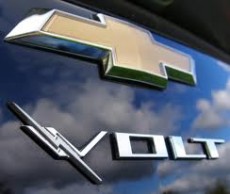 Electric cars have been around for more than 100 years but now the federal government �incentivizes� them, as politicians like to say. Electric vehicles (EVs) purchased in 2010 or after may be eligible for a federal income tax credit of up to $7,500. (The credit amount varies based on the capacity of the battery.) But even a tax break of that magnitude has failed to transform one electric vehicle into a best seller with American motorists.
Electric cars have been around for more than 100 years but now the federal government �incentivizes� them, as politicians like to say. Electric vehicles (EVs) purchased in 2010 or after may be eligible for a federal income tax credit of up to $7,500. (The credit amount varies based on the capacity of the battery.) But even a tax break of that magnitude has failed to transform one electric vehicle into a best seller with American motorists.
Last year the highly touted Chevy Volt failed to meet sales expectations and that trend continues. General Motors aimed for global sales of 60,000 Volts, with 45,000 in the United States. GM expected 35-40,000 U.S. sales in June but through July only 10,666 Americans bought a Volt, which can travel only 38 miles on battery before it needs a plug-in.� The sales slump has prompted General Motors to halt Volt production for a month, the second time this has happened.
Problems with Volt go beyond its limited range. The electric motor does not pollute, it is true, but the electrical plant that charges the battery does generate emissions. That reality does not show up in federal incentives. Neither does the reality that the electrical grid was not constructed for the charging demands of electric cars. These tend to be charged at night, when alternative sources such as solar and wind are not effective. Batteries do not last forever and disposal can be a problem. Likewise, biofuels enjoy federal incentives but also have an environmental downside. Government needs to see the big picture.
�Government investment needs to spur technological development, not simply entrench and institutionalize first-generation efforts to �green� the car culture,� explains Dr. Amy Kaleita. �Policy makers shouldn�t promote electric vehicles until the energy sector overall becomes less reliant on high-carbon sources. They should also incorporate a holistic approach to renewable fuel policy that looks at more than carbon emissions but factors such as water and land use.�
Spurring technological development, and making better use of our own energy reserves, would be a better plan than $7.5 billion in wasted subsidies�for a policy and product Americans aren�t buying.